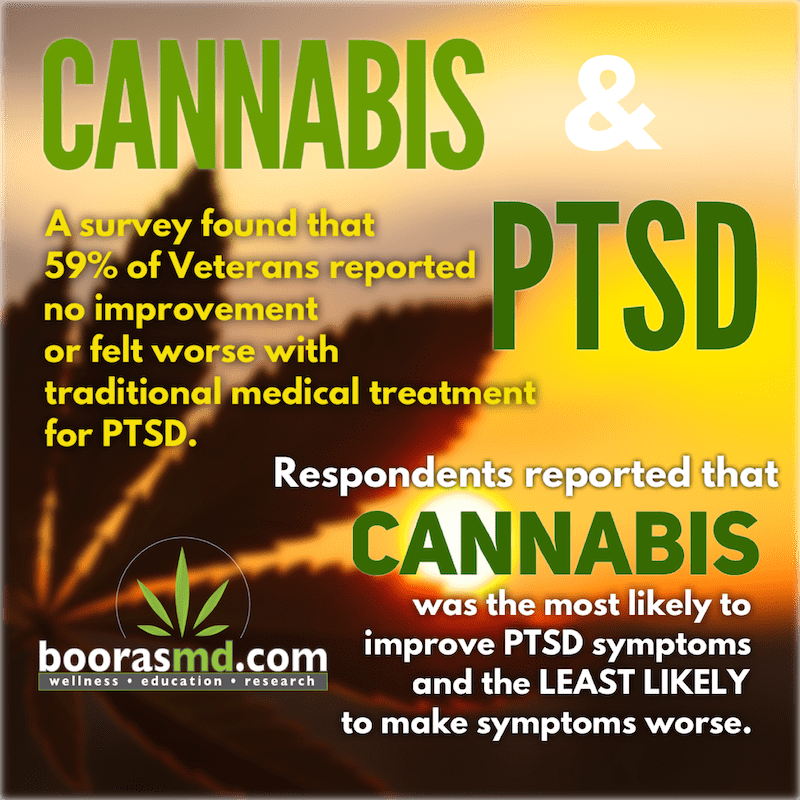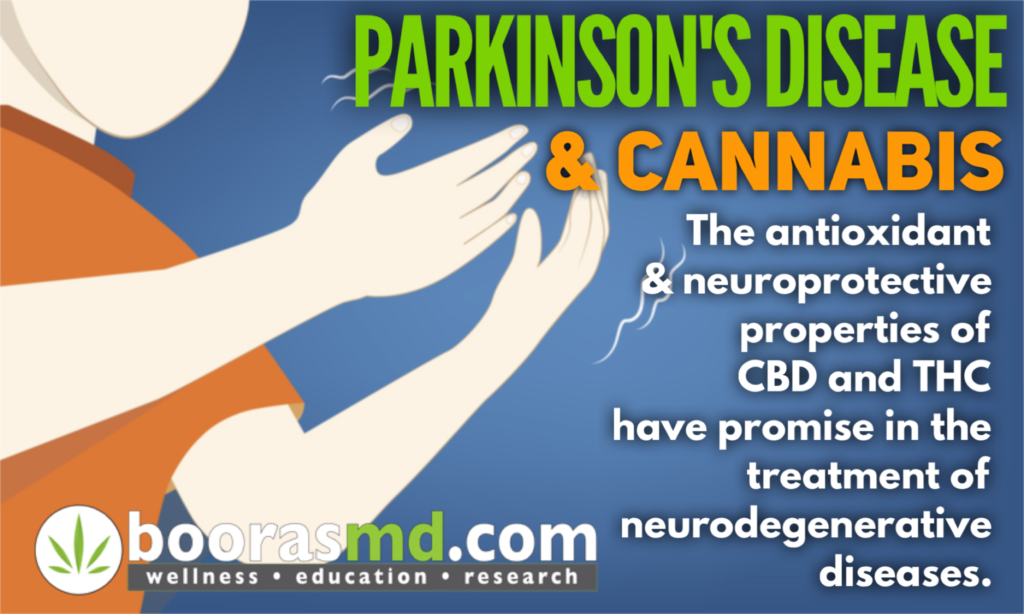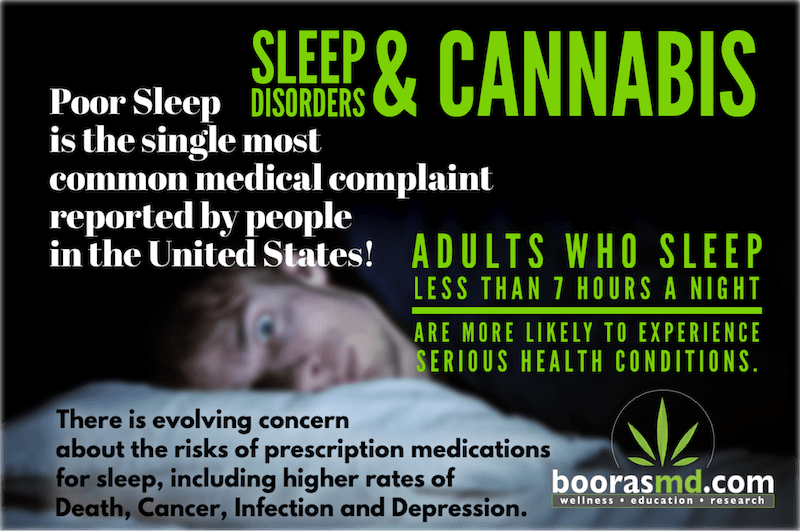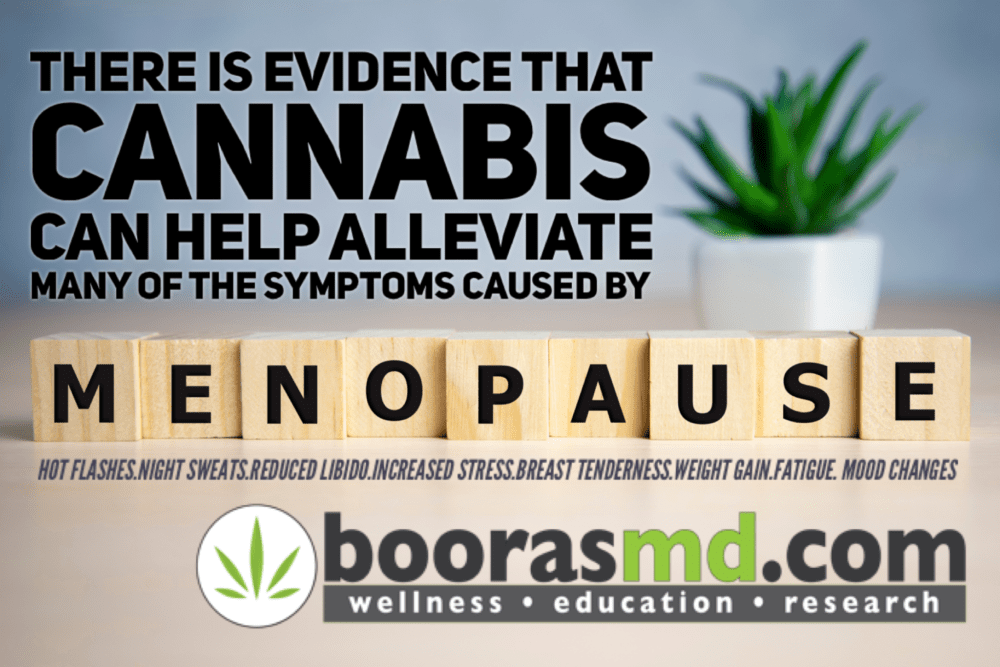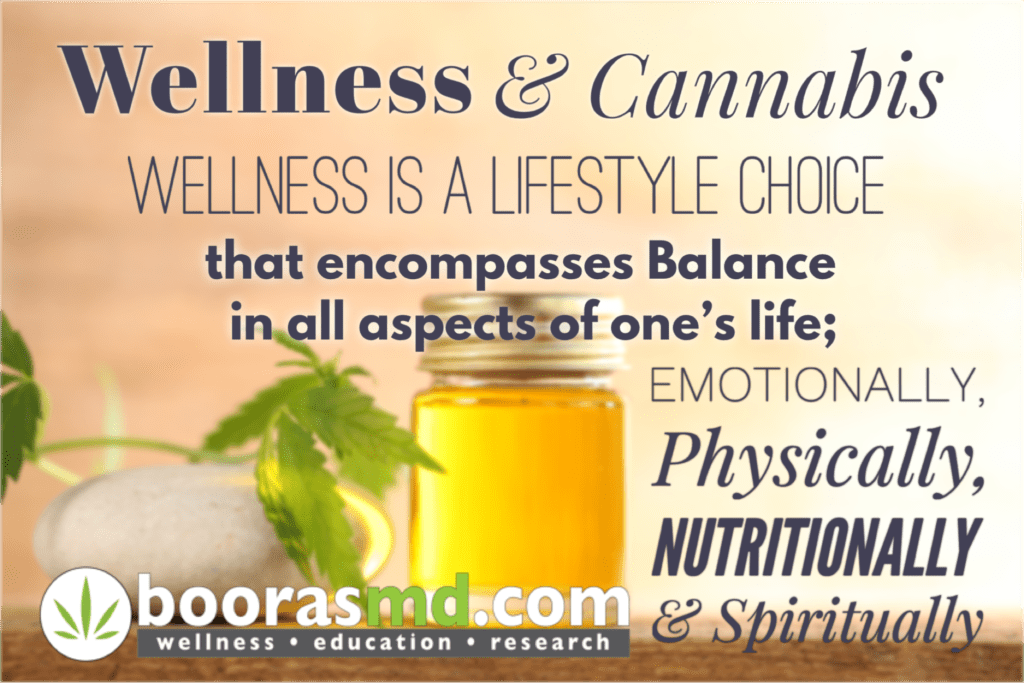PTSD and Medical Marijuana (Cannabis)
PTSD is one of the core certifying conditions qualifying one for treatment with Medical Cannabis.
Description: Post-traumatic stress disorder (PTSD) can develop after a person is exposed to a traumatic event, such as sexual assault, warfare, traffic collisions, child abuse, or other threats on a person’s life. Symptoms may include disturbing thoughts, feelings, or dreams related to the events, mental or physical distress to trauma-related cues, attempts to avoid trauma-related cues, alterations in how a person thinks and feels, and an increase in the fight-or-flight response. These symptoms last for more than a month after the event. A person with PTSD is at a higher risk for suicide and intentional self-harm. PTSD affects 7-8 percent of people at some point in their life time. Rates are higher in a military veterans.
The condition is characterized by intense feelings of distress when reminded of a tragic event. There can be extreme physical reactions during flashbacks which include nausea, sweating and pounding heart. Other symptoms include nightmares, insomnia, severe anxiety, loss of interest in life and daily activities, feeling emotionally numb and detached from other people, a sense of not leading a normal life and not having a positive outlook for the future, avoiding certain activities or places that remind you of the tragedy and difficulty remembering important aspects of a tragic event.
In my personal experience, there are many people who meet criteria for PTSD but have never been diagnosed since they might be reluctant to discuss symptoms with their healthcare professional.
People with PTSD are also more likely than others to have drinking problems. An astonishing 60-80% of Vietnam Veterans seeking PTSD treatment have alcohol use problems. 75% of those who have survived abusive or violent trauma report drinking problems. PTSD is also associated with significantly higher rates of suicidal thinking or attempts.
Conventional treatment: The most common medications used is a family of antidepressants with anti-anxiety properties called SSRI’s (PROZAC, PAXIL, ZOLOFT and others) and SNRI’s (EFFEXOR, etc).
Other commonly used medications include benzodiazepines such as XANAX, ATIVAN and KLONOPIN. These medications have the potential for addiction.
Other treatments include therapy with a psychologist trained in Cognitive Behavioral Therapy (CBT), Cognitive Processing Therapy, Prolonged Exposure Therapy, Eye Movement Desensitization and Reprocessing (EMDR) and Stress Inoculation Training (SIT).
Medical Cannabis: The bottom line is that Medical Cannabis is more likely to help control the symptoms of PTSD than traditional medical therapy. If nothing else, it will augment the treatment a person is already on.
A 2014 survey by the American Legion found that “59 percent of veterans reported feeling no improvement or feeling worse after undergoing traditional medical treatment for PTSD“. Veterans reported being prescribed more medications than civilians, which included antipsychotics, narcotic pain medications and mood stabilizers. Only 18 percent reported that symptoms improved on antidepressants and 50 percent reported that their Depression worsened. Roughly 50 percent of survey respondents reported that narcotics had been prescribed. A majority of these veterans stated that anger, irritability, depression and insomnia worsened on opioids.
Approximately 50 percent of respondents reported using CBD rich cannabis to treat PTSD symptoms. They reported that cannabis was the most likely to improve PTSD symptoms and the least likely to make symptoms worse. About 80 percent reported consuming less alcohol when using cannabis.
https://www.projectcbd.org/sites/projectcbd/files/downloads/ptsd-patient-survey_2016_march.pdf
Considerable evidence suggests that cannabinoids modulate the behavioral and physiological response to stressful events. An ideal pharmacological treatment for PTSD would be a drug able to block the pathological and continuous retrieval of the traumatic event (“flashbacks”), while enhancing its extinction and reducing the anxiety symptoms. Although no such drug is currently available, recent clinical studies point to the endocannabinoid system as a possible therapeutic target to treat both the emotional and cognitive dysfunctions characterizing PTSD.
https://www.ncbi.nlm.nih.gov/pmc/articles/PMC3739026/#B59
An article in the journal Neuroendocrinology highlights the crucial role of the endocannabinoid system in protecting against posttraumatic stress disorder (PTSD), a debilitating chronic condition involving horrific memories that cannot be erased. In an effort to understand the neurobiological mechanisms that underlie the onset and development of PTSD, a team of U.S. and Canadian scientists analyzed 46 subjects who were near the World Trade Center in New York City during the September 11 terrorist attacks. Twenty-four of these subjects suffered from PTSD following the attacks; 22 did not. The researchers found that people with PTSD had lower serum levels of anandamide, an endogenous cannabinoid compound, compared to those who did not show signs of PTSD after 9/11. Innate to all mammals, anandamide (our inner cannabis, so to speak) triggers the same brain receptors that are activated by tetrahydrocannabinol (THC) and other components of the marijuana plant.
https://www.projectcbd.org/science/treating-ptsd-cbd
“PTSD is one of many enigmatic conditions that may arise because of a dysfunctional endocannabinoid system”. Dr. Ethan Russo postulates that clinical endocannabinoid deficiency underlies migraines, fibromyalgia, irritable bowel disease, and a cluster of related degenerative conditions—which may respond favorably to cannabinoid therapies. https://boorasmd.com/education/articles/clinical-endocannabinoid-deficiency/
https://boorasmd.com/education/cannabis-and-the-endocannabinoid-system/
References:
Hill, MN, et al., “Reductions in circulating endocannabinoid levels in individuals with post-traumatic stress disorder following exposure to the world trade center attacks,” Psychoneuroendocrinology, 2013 Sept 10.
https://www.ncbi.nlm.nih.gov/pmc/articles/PMC3870889/
Neumeister, Alexander, “The endocannabinoid system provides an avenue for evidence-based treatment development for PTSD,” Depression and Anxiety, 30:93-96 (2013).
https://onlinelibrary.wiley.com/doi/abs/10.1002/da.22031
Written by Charlie Booras, MD on 9/9/20.
Updated on August 20, 2021.

